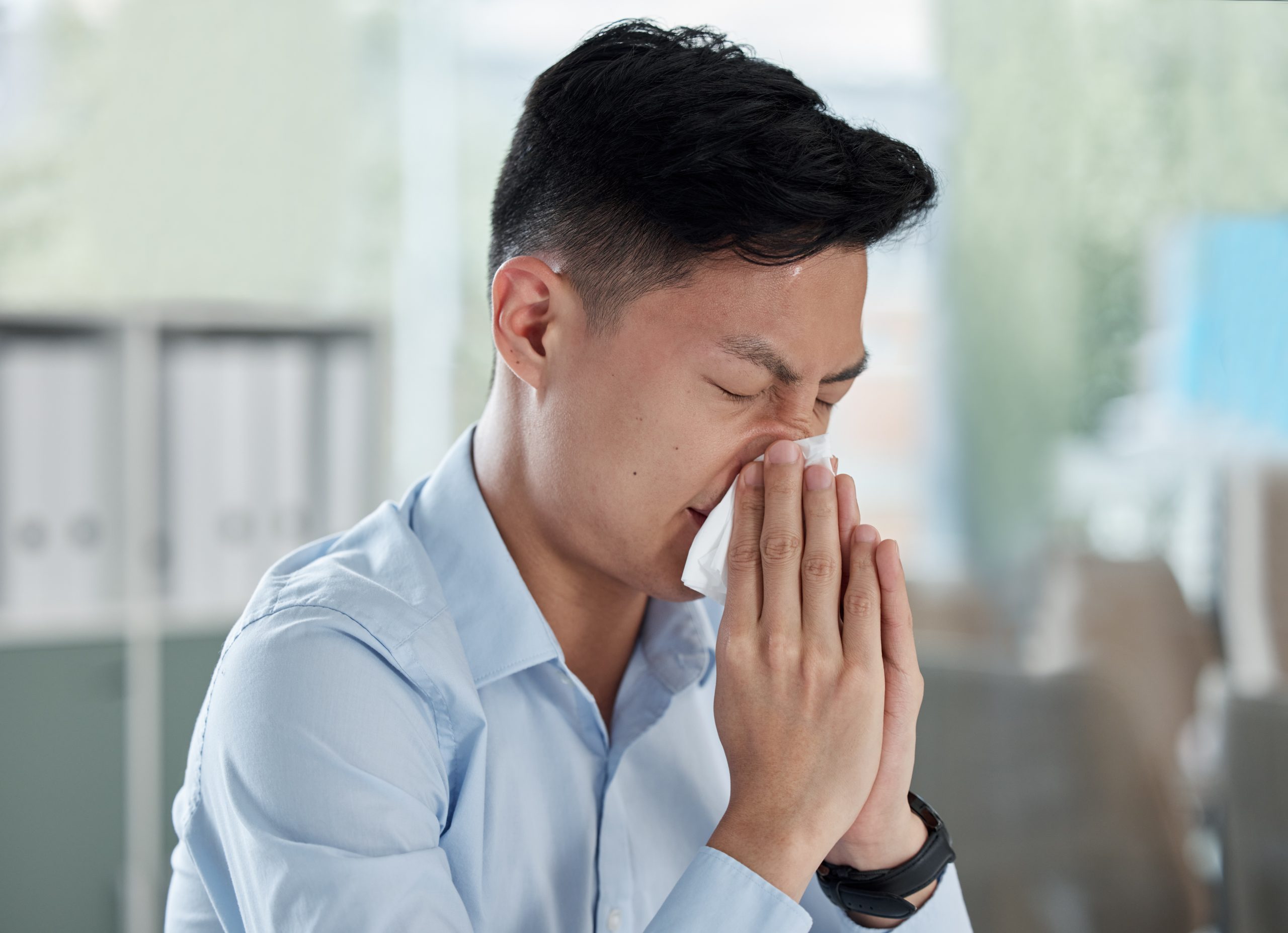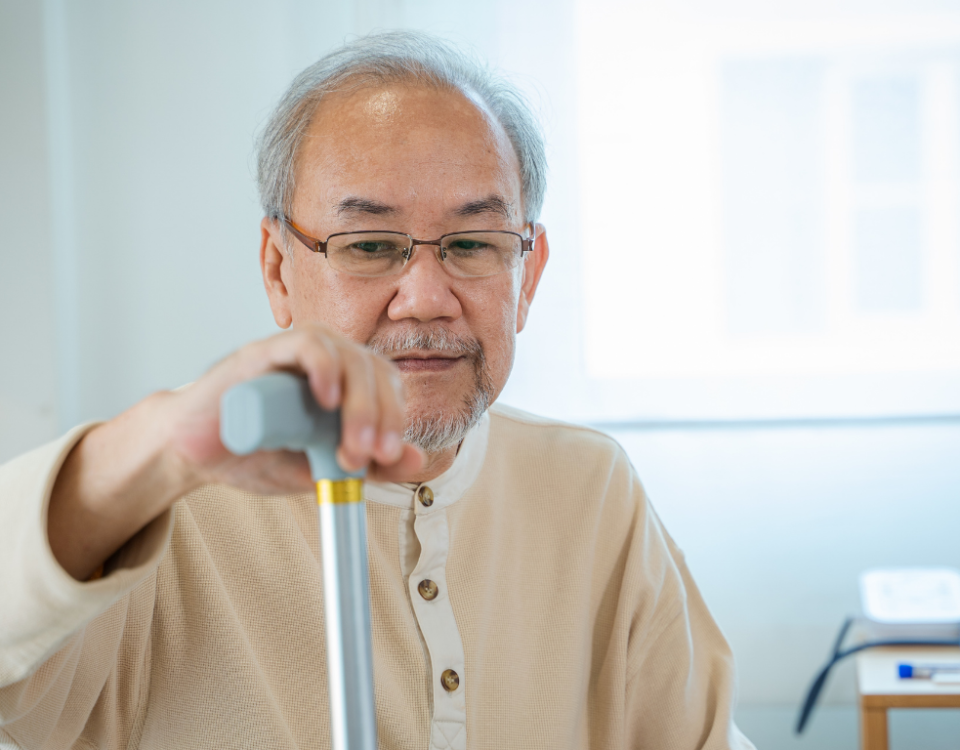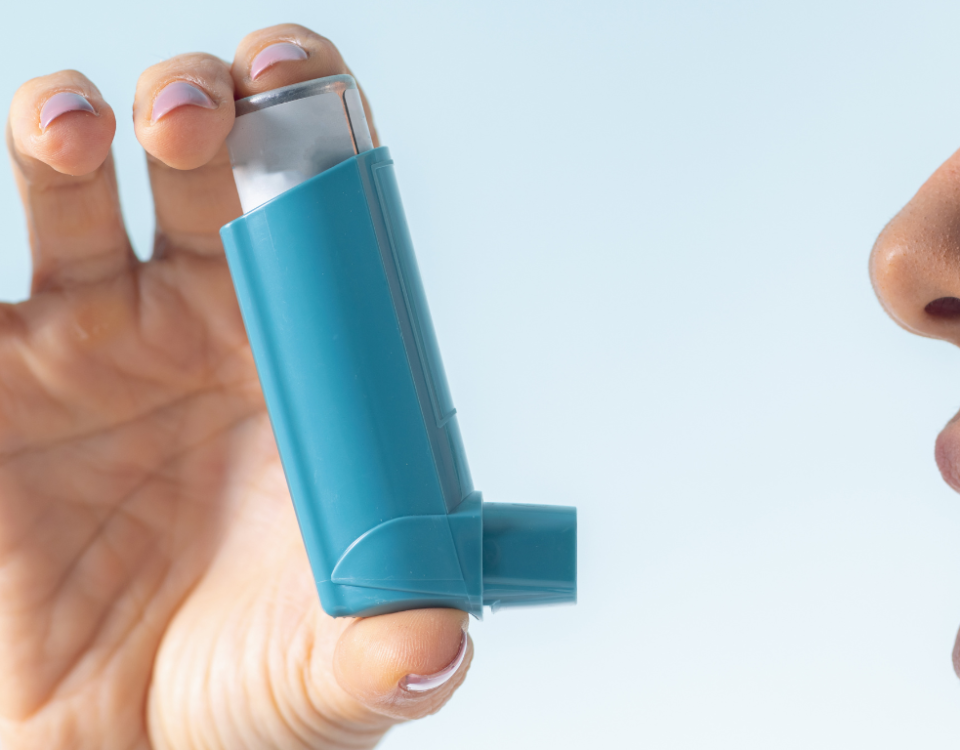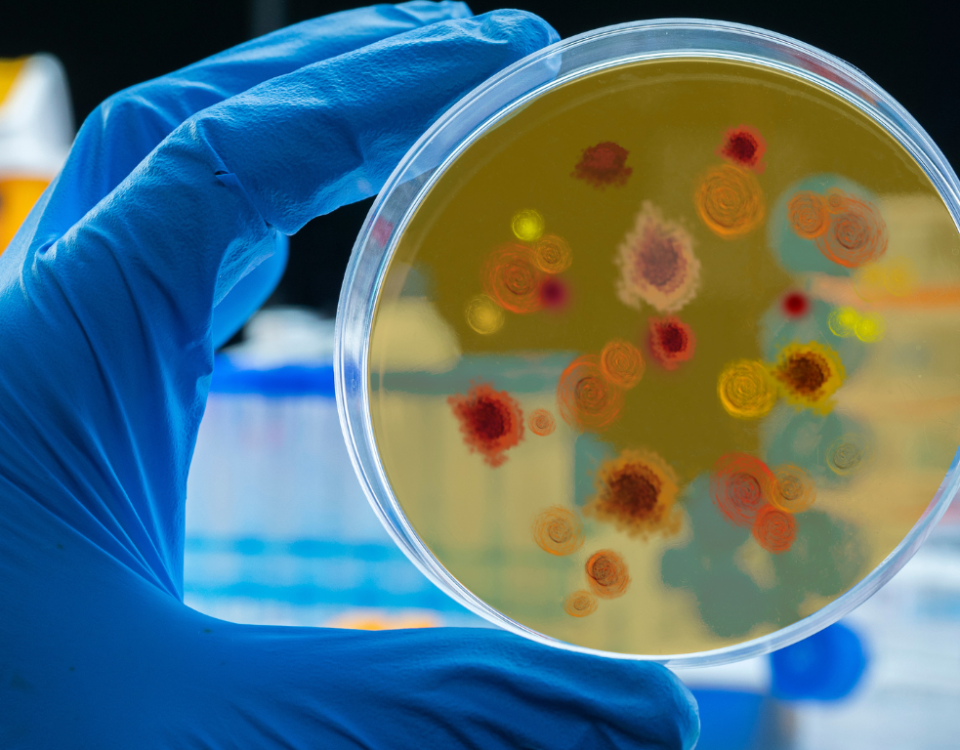Pneumonia Treatment and Prevention in Singapore
by: Dr. Paul Chang, General Practitioner, Regis Medical
Last updated: November 28, 2025
Pneumonia refers to the inflammation of the lungs typically caused by bacterial infections. Pneumonia can affect anybody but is more common and severe in groups such as the very young and elderly. In fact, pneumonia is the leading infectious cause of death in children worldwide, accounting for 14% of all deaths of children under five years old but 22% of all deaths in children aged 1 to 5. Fortunately, pneumonia can be prevented as well as be treated.
Pneumonia in Singapore
Pneumonia is a common acute condition in Singapore and can be rather severe if left untreated. According to the Ministry of Health, pneumonia is the second leading cause of death in Singapore, accounting for 20.7% of deaths in 2019.

What is Pneumonia?
Pneumonia is an infection that causes the air sacs in your lungs to be inflamed, resulting in fluid or pus filling your air sacs, which can cause cough with phlegm or pus, fever, chills, and difficulty breathing. Pneumonia can be mild or severe, and even life-threatening in some cases. People aged 65 and above, infants and young children, and people with underly health issues or weakened immune systems are more prone to severe cases of pneumonia.
Pneumonia is contagious and can be spread from person to person. It can be spread by:
- Coughs or sneezes that are not covered
- Shared dining utensils
- Physical contact with items such as tissues or towels that have been used by somebody with pneumonia
Symptoms of Pneumonia
People sometimes confuse pneumonia with the common flu. Since pneumonia is a lung infection, it tends to cause more respiratory symptoms. Symptoms of Pneumonia can include:
- Fever
- Sweating and shivering
- Chills
- Cough that produces thick coloured, blood-stained or clear phlegm
- Difficulty breathing
- Loss of appetite
- Fatigue or tiredness
- Nausea and vomiting
- Chest pains that get worse when coughing or breathing
- Cough lasting for more than 1 week
- Difficulty breathing or shortness of breath
- A fever over 38 degrees Celsius that has not gone away after than 3 days
- Worsening symptoms
Seek medical help if you display the following symptoms:
Risk Factors of Pneumonia
Risk factors of pneumonia include:
- Children aged 2 and below
- People aged 65 and above
- Being hospitalised, especially if you have to use a machine that helps you breathe
- Chronic diseases such as asthma, chronic obstructive pulmonary disease (COPD) or heart disease.
- Smoking, which damages your body’s natural defences against infections like pneumonia.
- Weakened or suppressed immune systems.
Complications of Pneumonia
Pneumonia can sometimes lead to complications, even after it is treated. This is more common for high-risk groups. Complications of pneumonia can include:
- Bacteraemia - Where bacteria from your lungs enter your bloodstream, spreading the infection to other vital organs, possibly leading to organ failure.
- Difficulty breathing - Pneumonia may sometimes be so severe that it causes breathing difficulty. This may require hospitalisation so that you can get assistance from a breathing machine (ventilator).
- Pleural effusion - Where fluids build up around the lungs. Pneumonia may cause fluid to build up in the thin space between layers of tissue that line the lungs and chest cavity (pleura). This fluid will have to be drained from your body if it gets infected.
- Lung abscess - Where pus forms in a cavity in the lung. This can usually be treated with antibiotics. The pus may require surgery or drainage to be removed from the abscess.
- Blood poisoning (sepsis) - A life-threatening condition in which your immune system overreacts to an infection and begins to damage your organs and tissues.
Diagnosing Pneumonia
If you are having symptoms of pneumonia and suspect that you may have pneumonia, do visit a doctor who will then assess your physical condition before deciding whether you will need to be tested for pneumonia.
Pneumonia is typically diagnosed by:
- A chest X-ray. This can check for inflammation in the lungs.
- Blood tests. Blood tests can check for whether your immune system is actively fighting an infection.
- A sputum test. This test uses a sample of your spit to check for germs causing pneumonia.
Preventing Pneumonia
While pneumonia can be a very common type of infection, there are multiple ways in which you can prevent yourself from getting pneumonia.
Pneumonia Vaccination
Pneumococcal vaccines can help prevent pneumococcal diseases caused by the bacteria Streptococcus pneumoniae. These diseases include:
- Pneumonia
- Otitis media
- Meningitis
- Bacteraemia
There are 2 types of pneumococcal vaccines available in Singapore:
- Pneumococcal Conjugate Vaccine (PCV13)
- Pneumococcal Conjugate Vaccine (PCV20)
- Pneumococcal Polysaccharide Vaccine (PPSV23)
Singaporean infants should be given two doses of PCV13 at ages 6 to 8 months, as well as a booster shot after 12 months. For elderly aged 65 and above, it is recommended that you receive one dose of each pneumococcal vaccine.
Do ensure that you consult a doctor if you are suitable for the vaccination before taking the jab.
While the vaccination comes along with mild side-effects, they are usually harmless and will go away on their own within 2 or 3 days.
Should you experience the following symptoms, you should look for medical assistance immediately:
- Swollen face/eyes/lips/tongue
- Difficulty in breathing
- Itchy skin rashes over your whole body
Practicing Good Hygiene Practices
Simply washing your hands regularly with soap can help reduce the risks of getting pneumonia. An alcohol-based hand sanitizer can also be used if you do not have access to soap and water.
Avoid exposing yourself to people who are sick
Respiratory infections like pneumonia can be spread by particles in the air or by physical surfaces that we come into contact with. Avoiding contact with those who are sick can reduce your risk of exposing yourself to bacteria that can cause pneumonia.
Leading a Healthy Lifestyle
Having a healthy lifestyle can allow you to keep your immune system in good condition, so that it can fight off infections successfully.
The following methods can help to strengthen your immune system:
- Getting sufficient sleep
- Having a balanced diet with sufficient nutrients
- Regular exercise
- Not smoking
Pneumonia Treatment
Pneumonia can usually be treated at home with the help of antibiotics. It is estimated that only 15% of pneumonia patients will require hospitalisation, mainly those who are older with underlying health conditions or those with serious infections.
Antibiotics are usually taken orally to treat pneumonia. However, antibiotics are not effective in treating pneumonia that is caused by viral infections. Antiviral medication can help treat certain types of viral pneumonia. Medication may also be prescribed to help ease some of the symptoms of pneumonia, such as coughing, fever, chest pains and body aches. Sufficient rest and fluid consumption will help in the recovery process.
Severe cases of pneumonia will require hospitalisation, where intravenous antibiotics or anti-viral medications may be required. Antibiotics will be given to the bloodstream directly rather than through oral medication. Oxygen therapy may be necessary depending on the patient’s condition.
Disclaimer:
The information on this website, including but not limited to, text, graphics, images, videos and all other materials contained on this website is for informational purposes only. None of the material is meant to replace a certified and registered Doctor's professional medical advice, diagnosis, and treatment.
No warranties or representations are given in respect of the medical information. Regis Medical, Regis Medical’s staff, and the website's operator will not be held liable if a user suffers any injury or loss after relying upon the medical information on this website.
Any devices used for technology-enhanced therapies are intended for use only for general well-being purposes or to encourage or maintain a healthy lifestyle and is not intended to be used for any medical purpose (such as the detection. diagnosis, monitoring, management or treatment of any medical condition or disease). Any health-related information provided by this device or software should not be treated as medical advice. Please consult a certified and registered Doctor for any medical advice required.
“5 Tips for Preventing Pneumonia.” How to Prevent Pneumonia: 5 Tips plus Treatment and Recovery Advice, Healthline Media, 18 Nov. 2021, https://www.healthline.com/health/how-to-prevent-pneumonia#get-a-pneumonia-vaccine.
Acupuncture Severe Pneumonia Relief Findings, Health Care Medicine Institute, 5 Apr. 2020, https://www.healthcmi.com/Acupuncture-Continuing-Education-News/2015-acupuncture-severe-pneumonia-relief-findings.
“Can Pneumonia Be Contagious?” Is Pneumonia Contagious?, Healthline Media, 29 Nov. 2021, https://www.healthline.com/health/is-pneumonia-contagious#vaccination.
Chandra, Anjana Motihar. “ Pneumonia: Treatment and Prevention.” Lung Conditions, HealthXchange, https://www.healthxchange.sg/heart-lungs/lung-conditions/pneumonia-treatment-prevention.
Fang, Li et al. “Traditional Chinese medicine injection for the treatment of viral pneumonia in children: A protocol for systematic review and meta-analysis.” Medicine vol. 100,16 (2021): e25506. doi:10.1097/MD.0000000000025506
“Pneumococcal Vaccine.” HealthHub, Pharmaceutical Society of Singapore, Dec. 2019, https://www.healthhub.sg/a-z/medications/375/Pneumococcal-Vaccine.
“Pneumonia - Diagnosis.” National Heart Lung and Blood Institute, U.S. Department of Health and Human Services, 24 Mar. 2022, https://www.nhlbi.nih.gov/health/pneumonia/diagnosis#:~:text=A%20chest%20X%2Dray%20is,enough%20oxygen%20into%20your%20blood.
“Pneumonia - Treatment.” NHS Choices, NHS, 30 June 2019, https://www.nhs.uk/conditions/pneumonia/treatment/#:~:text=Mild%20pneumonia%20can%20usually%20be,cases%20may%20need%20hospital%20treatment.
“Pneumonia.” HealthHub, Health Promotion Board, 5 Mar. 2022, https://www.healthhub.sg/a-z/diseases-and-conditions/122/topic_pneumonia.
“Pneumonia.” Mayo Clinic, Mayo Foundation for Medical Education and Research, 13 June 2020, https://www.mayoclinic.org/diseases-conditions/pneumonia/symptoms-causes/syc-20354204#:~:text=Pneumonia%20is%20an%20infection%20that,and%20fungi%2C%20can%20cause%20pneumonia.
“Pneumonia.” NHS Choices, NHS, 30 June 2019, https://www.nhs.uk/conditions/pneumonia/.
“Pneumonia.” Pneumonia - Conditions & Treatment, SingHealth, https://www.singhealth.com.sg/patient-care/conditions-treatments/pneumonia#:~:text=In%20the%20young%2C%20healthy%20patients,cases%20require%20antibiotics%20as%20well.
“Pneumonia.” World Health Organization, World Health Organization, 11 Nov. 2021, https://www.who.int/news-room/fact-sheets/detail/pneumonia.
“Symptoms - Sepsis.” NHS Choices, NHS, 18 July 2019, https://www.nhs.uk/conditions/sepsis/.
Qiao, Ming et al. Zhongguo zhen jiu = Chinese acupuncture & moxibustion vol. 40,10 (2020): 1076-80. doi:10.13703/j.0255-2930.20200302-k0001
Shengyan, Xi, et al. “Role of Traditional Chinese Medicine in the Management of Viral Pneumonia” Frontiers in Pharmacology, Vol. 11, 2020. https://www.frontiersin.org/articles/10.3389/fphar.2020.582322. doi:10.3389/fphar.2020.582322. ISSN: 1663-9812
Xu, Jing et al. “Exploration on the feasibility of moxibustion in prevention and treatment of COVID-19 from the perspective of modern medical mechanism.” World journal of acupuncture-moxibustion vol. 30,2 (2020): 81-84. doi:10.1016/j.wjam.2020.06.001


